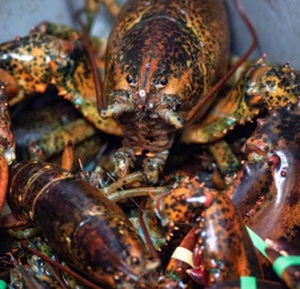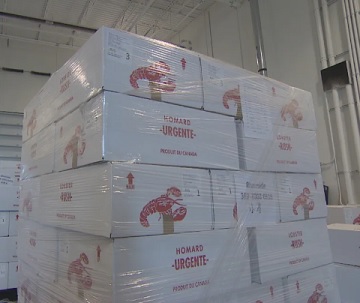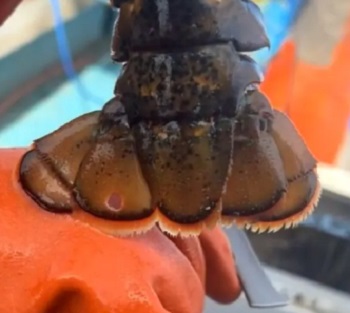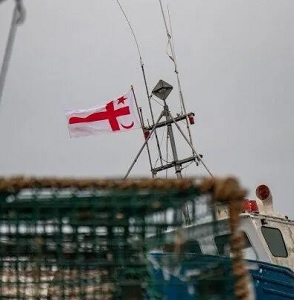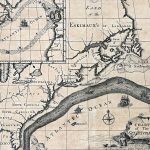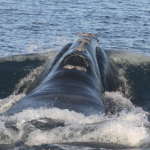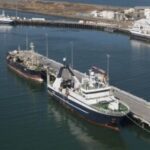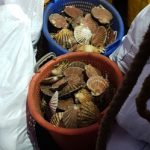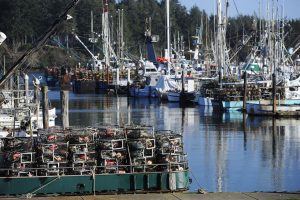Tag Archives: Colin Sproul
Trudeau Government’s Fisheries Mismanagement is Cutting Through Atlantic Canada
 Clifford Small, MP for Coast of Bays-Central-Notre Dame and Shadow Minister for Fisheries, Oceans and ick Perkins,The Canadian Coast Guard; Rick Perkins, MP for South Shore-St. Margarets and Shadow Minister for Innovation, Science and Industry; John Williamson, MP for New Brunswick Southwest; Chris d’Entremont, MP for West Nova, and the Hon. Rob Moore, MP for Fundy Royal, released the following statement: “After nine years of Justin Trudeau, the Liberal Government’s job-killing agenda is cutting through Atlantic Canada. Liberal failure to stop illegal lobster fishing is delivering hardship for our coastal communities along the Bay of Fundy. more, >>CLICK TO READ<< 13:47
Clifford Small, MP for Coast of Bays-Central-Notre Dame and Shadow Minister for Fisheries, Oceans and ick Perkins,The Canadian Coast Guard; Rick Perkins, MP for South Shore-St. Margarets and Shadow Minister for Innovation, Science and Industry; John Williamson, MP for New Brunswick Southwest; Chris d’Entremont, MP for West Nova, and the Hon. Rob Moore, MP for Fundy Royal, released the following statement: “After nine years of Justin Trudeau, the Liberal Government’s job-killing agenda is cutting through Atlantic Canada. Liberal failure to stop illegal lobster fishing is delivering hardship for our coastal communities along the Bay of Fundy. more, >>CLICK TO READ<< 13:47
Fishing group expresses concern about oil spill in Saulnierville Harbour
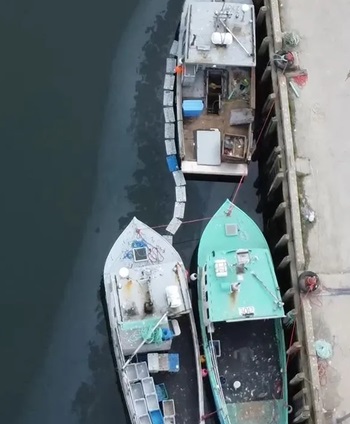 A fishing organization is concerned that a recent oil spill near the government wharf in Saulnierville, N.S., could make people sick and have disastrous implications for the province’s seafood industry if it’s not addressed as soon as possible. The Unified Fisheries Conservation Alliance released video on Thursday of fishing vessels along the wharf surrounded by oil. Tied to some of those boats are crates of lobster floating in the water. “When we saw it we were pretty shocked,” Colin Sproul, the alliance president said in an interview. “We’re really concerned that oil-soaked lobster is going to make it into the marketplace and make people sick.” Officials with the federal government have not yet responded to requests for comment. more, >>CLICK TO READ<< 08:44
A fishing organization is concerned that a recent oil spill near the government wharf in Saulnierville, N.S., could make people sick and have disastrous implications for the province’s seafood industry if it’s not addressed as soon as possible. The Unified Fisheries Conservation Alliance released video on Thursday of fishing vessels along the wharf surrounded by oil. Tied to some of those boats are crates of lobster floating in the water. “When we saw it we were pretty shocked,” Colin Sproul, the alliance president said in an interview. “We’re really concerned that oil-soaked lobster is going to make it into the marketplace and make people sick.” Officials with the federal government have not yet responded to requests for comment. more, >>CLICK TO READ<< 08:44
Lobster group files legal action over moderate livelihood fishery
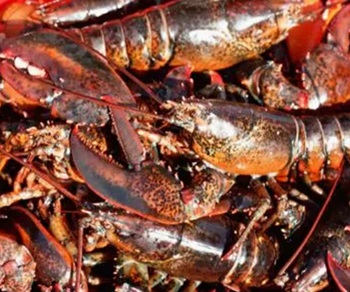 A lobster conservation group in southwestern Nova Scotia is taking legal action against Ottawa and the Sipekne’katik First Nation over out of season fishing. The Unified Fisheries Conservation Alliance (UFCA) filed a notice of action in Supreme Court in an effort to declare the summer fishery illegal. “The Supreme Court of Canada introduced the concept of a moderate livelihood fishery via the Marshall decisions but has never adequately defined the scope and limits that should apply,” said Michel Samson, counsel with the law firm Cox & Palmer. “This has created confusion between the DFO and the Public Prosecution Service as to what laws to enforce. It is imperative that our courts provide the rules and clarity required for both the commercial fishery and for First Nation communities.” more, >>CLICK TO READ<< 13:05
A lobster conservation group in southwestern Nova Scotia is taking legal action against Ottawa and the Sipekne’katik First Nation over out of season fishing. The Unified Fisheries Conservation Alliance (UFCA) filed a notice of action in Supreme Court in an effort to declare the summer fishery illegal. “The Supreme Court of Canada introduced the concept of a moderate livelihood fishery via the Marshall decisions but has never adequately defined the scope and limits that should apply,” said Michel Samson, counsel with the law firm Cox & Palmer. “This has created confusion between the DFO and the Public Prosecution Service as to what laws to enforce. It is imperative that our courts provide the rules and clarity required for both the commercial fishery and for First Nation communities.” more, >>CLICK TO READ<< 13:05
Commercial fishers demand stricter enforcement and penalties for illegal lobster sales – Federal and provincial governments need to step-up enforcement
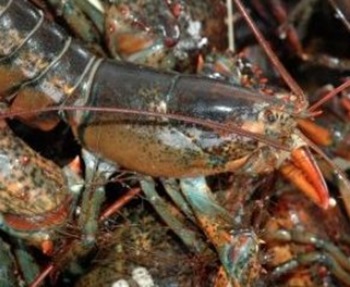 Uncertainty on the future of the commercial fishery will potentially put the sustainability of the lobster catch and jobs at risk according to the leaders of the Coalition of Atlantic and Quebec Fishing Organizations and the Unified Fisheries Conservation Alliance (UFCA). The upcoming meeting of fisheries ministers from across Canada is a unique opportunity to make sure the commercial fishery remains sustainable. Action is needed from both federal and provincial officials. For the Government of Canada, keeping independent enforcement officers on the water is critical to making sure no one fishes out of season. “Enforcing one set of rules for everyone is the key to a strong fishery. Impartial, independent enforcement officers at Department of Fisheries and Oceans is at the heart of a sustainable fishery,” according to Gordon Beaton, president of the Gulf Nova Scotia Fleet Planning Board. “We are concerned about potential changes to enforcement, we need more, not less, independent enforcement of the rules.” Science, not politics, should be driving decisions on the fishery. more, >>CLICK TO READ<< 17:40
Uncertainty on the future of the commercial fishery will potentially put the sustainability of the lobster catch and jobs at risk according to the leaders of the Coalition of Atlantic and Quebec Fishing Organizations and the Unified Fisheries Conservation Alliance (UFCA). The upcoming meeting of fisheries ministers from across Canada is a unique opportunity to make sure the commercial fishery remains sustainable. Action is needed from both federal and provincial officials. For the Government of Canada, keeping independent enforcement officers on the water is critical to making sure no one fishes out of season. “Enforcing one set of rules for everyone is the key to a strong fishery. Impartial, independent enforcement officers at Department of Fisheries and Oceans is at the heart of a sustainable fishery,” according to Gordon Beaton, president of the Gulf Nova Scotia Fleet Planning Board. “We are concerned about potential changes to enforcement, we need more, not less, independent enforcement of the rules.” Science, not politics, should be driving decisions on the fishery. more, >>CLICK TO READ<< 17:40
Lobster fishers want to see a crack down on poaching in southwestern Nova Scotia
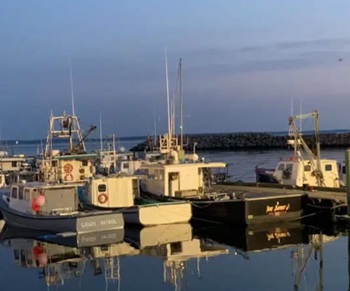 The issue was raised during a meeting in Yarmouth among industry members and the Department of Fisheries and Oceans (DFO). They’re worried more moderate livelihood fishing will dominate St. Mary’s Bay. First Nations fishers maintain their Treaty rights to fish. DFO has not authorized that fishery, but they do allow some Food, Social and Ceremonial licenses. Colin Sproul with the Unified Fisheries Conservation Alliance says catches were low in the bay during the fall season. “Everybody in southwestern Nova Scotia knows why that is. I think it’s incumbent on the government to act now, before lobster fishing in St. Mary’s Bay is a thing of the past,” said Sproul. more, >>CLICK TO READ<< 05:53
The issue was raised during a meeting in Yarmouth among industry members and the Department of Fisheries and Oceans (DFO). They’re worried more moderate livelihood fishing will dominate St. Mary’s Bay. First Nations fishers maintain their Treaty rights to fish. DFO has not authorized that fishery, but they do allow some Food, Social and Ceremonial licenses. Colin Sproul with the Unified Fisheries Conservation Alliance says catches were low in the bay during the fall season. “Everybody in southwestern Nova Scotia knows why that is. I think it’s incumbent on the government to act now, before lobster fishing in St. Mary’s Bay is a thing of the past,” said Sproul. more, >>CLICK TO READ<< 05:53
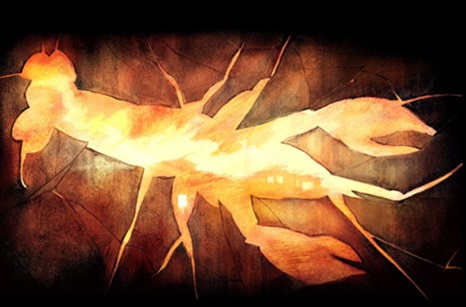
Nova Scotia’s Billion-Dollar Lobster Wars
At the River Café, the Michelin-recommended restaurant on the Brooklyn waterfront where the term “free-range chicken” was coined, the lobster is served butter-poached next to a pool of lemon-grape sauce, to brighten its tender brininess. The chef, Brad Steelman, insists on lobster from the cold waters of Nova Scotia, because this insures a hard shell and robust meat. Not so long ago, good lobster could be found closer to the city. Historically, there were strong harvests as far south as New Jersey. Private-equity firms and seafood conglomerates have swallowed many of North America’s fisheries. But, in Nova Scotia, most lobstermen are independent. But many inshore fishermen have also resisted a recent entrant to the power struggle: the Mi’kmaq, the most populous group of Indigenous people in Atlantic Canada. more, >>CLICK TO READ<< 06:58
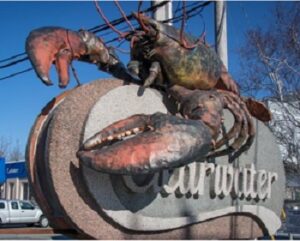
Clearwater Seafoods wants 72 tonnes of lobster added to its annual harvesting quota
The Indigenous-owned company has exclusive rights to Lobster Fishing Area 41, or LFA 41, off southern Nova Scotia, where Clearwater maintains a long-held quota of 720 tonnes. Last fall, the Membertou First Nation and Mi’kmaw partners in the company asked the Department of Fisheries and Oceans to increase the total allowable catch by ten per cent. In response, DFO has issued an “interim” total allowable catch of 720 tonnes for 2023 while it considers this request. The Brazil Rock Lobster Association, the Coldwater Lobster Association and the LFA 33 Advisory Committee have submitted letters to DFO in opposition. >click to read< 08:44
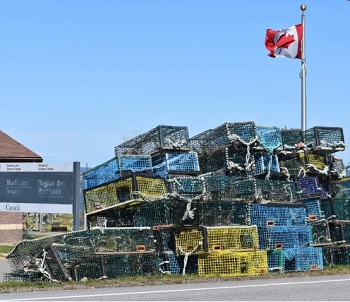
Nova Scotia cracks down on lobster operators to protect industry’s ‘integrity’- Suspensions issued at 2 lobster pounds
In August 2018, Fisher Direct in Shag Harbour, N.S., was caught with lobster harvested under an Indigenous licence, which bars selling the catch. The pound, which has annual sales upwards of $20 million, had received a shipment of 1,400 kilograms of lobsters the day before federal fisheries officers descended on the facility. Inside the 31 crates, officers found 48 lobsters tagged for Indigenous food, social or ceremonial purposes that the department had previously microchipped. Meanwhile, a larger operation in southwestern Nova Scotia is also facing at least one licence suspension. In 2021, Atlantic ChiCan on Cape Sable Island was convicted for illegally shipping American lobsters to China, claiming they came from Canada. >click to read< 07:16
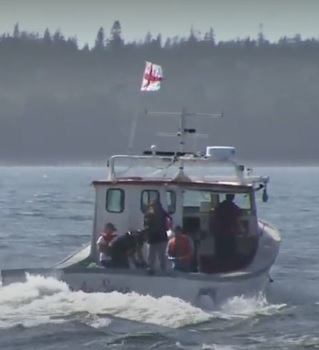
Conflict over new Indigenous lobster fishery continues to smolder amid some progress
Federal conservation officers have seized more than 7,000 lobster traps in the two years since violence flared in Nova Scotia when a First Nation tried to assert a treaty right by fishing out of season. Earlier this month, the Department of Fisheries and Oceans confirmed it had confiscated almost 2,000 traps this year alone, a figure that shows the dispute between Ottawa and some Indigenous fishers has not gone away, despite DFO’s best efforts to keep a lid on tensions. Tim Kerr, DFO’s director of conservation and protection in the Maritimes, said the department has stepped up patrols in the region to ensure safety and compliance with the rules. >click to read< 12:00
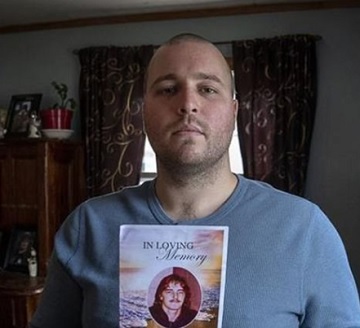
Transport Canada must be ‘more vigilant,’ relatives say two years after N.S. sinking
“My father said, ‘After this trip, this was it,’ because it was quite dangerous,” Michael Francis said during a recent interview at his home in Milton, N.S., a few weeks before the second anniversary of the sinking of the Chief William Saulis. The bodies of Eugene (Geno)Michael Francis, Aaron Cogswell, Leonard Gabriel, Dan Forbes and captain Charles Roberts were never recovered after the 17-metre vessel capsized on Dec. 15, 2020, just off Delaps 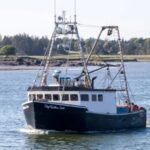 Cove, about 50 kilometres north of Digby, N.S. The body of crew member Michael Drake was swept up on the rocky shoreline. Two years later, Francis and Lori Phillips, the mother of Cogswell, say Dec. 15 is a date that provokes painful memories, unanswered questions and frustration over a Transportation Safety Board investigation that still hasn’t officially delivered its findings. >click to read< 08:43 >Search Results for Chief William Saulis<
Cove, about 50 kilometres north of Digby, N.S. The body of crew member Michael Drake was swept up on the rocky shoreline. Two years later, Francis and Lori Phillips, the mother of Cogswell, say Dec. 15 is a date that provokes painful memories, unanswered questions and frustration over a Transportation Safety Board investigation that still hasn’t officially delivered its findings. >click to read< 08:43 >Search Results for Chief William Saulis<

Fisheries report brings hope to Indigenous communities, sparks anger in industry
“I was pleasantly surprised, to be honest,” said Rosalie Francis, a member of the Sipekne’katik First Nation in Nova Scotia. But elsewhere in the province, the surprise has been significantly less pleasant. There are concerns the report titled “Peace on the Water” is instead stoking anger in communities where lobster is a livelihood. Representatives of the commercial fishing industry say they’re frustrated they weren’t invited to speak to the Senate as it drafted the report on Indigenous rights. It’s “throwing fuel on a fire” in an area where tensions have remained high since 2020, said Colin Sproul, president of the Unified Fisheries Conservation Alliance, which has about 1,900 members. >click to read< 12:09
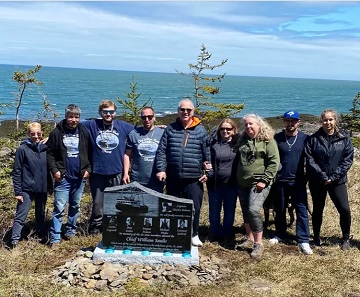
‘The spot is beautiful’: Chief William Saulis crew remembered with memorial
Lori Phillips was at a loss. She didn’t want to go to just any random cemetery and place a headstone with her son Aaron’s name on it. She would have no relationship to that spot, she says. It would just be a stone on a piece of land. Her son, Aaron Cogswell, was one of six fishermen who lost their lives in the Dec. 15, 2020, sinking of the Chief William Saulis scallop dragger. The others were Charles Roberts, Daniel Forbes, Michael Drake, Eugene Francis, and Leonard Gabriel. Phillips needed a place for her and others to remember the crew. >click to read< 09:01
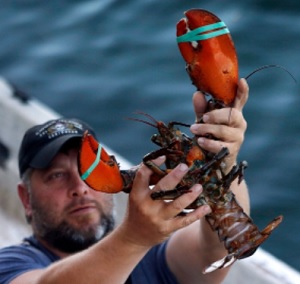
‘Expensive lobster is good for everyone in N.S.’: Winners and losers as prices of crustaceans skyrocket
Unless you buy it regularly, you may not have noticed lobster prices have quietly skyrocketed over the last couple of years. “Also, people had some more disposable income because the government programs, whether it be Canada, the U.S. or elsewhere, and I think everything has led to an uptick in prices, and the markets have remained strong.” Restaurant demand has now recovered, Berry says, but retail has remained strong and international demand has exploded. Wharf prices now are said to be nearly five times what they were during a slump at the start of the pandemic. Video, >click to read< 09:10

‘Our lobsters are gold plated now:’ Atlantic Canada lobster exports, prices soar
“Our lobsters are gold-plated now. Prices have been the highest in commercial history,” says Stewart Lamont, managing director of Tangier Lobster Co. Ltd, a live lobster exporter on Nova Scotia’s eastern shore. When the pandemic hit, export and restaurant industry demand plummeted. The shore price of lobster, the amount fishers get at the wharf from buyers, sunk as low as $4 a pound. “There was an initial glut of lobsters on the market at the start of the lockdown but then it spun back the other way,” says Colin Sproul, president of the Bay of Fundy Inshore Fishermen’s Association. >click to read< 16:47
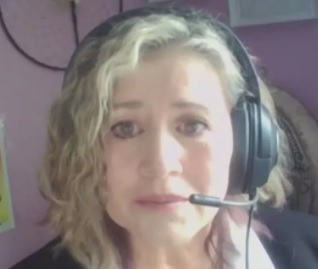
Mi’kmaw negotiator advocates for reduction in commercial catches to bolster treaty fishery
A top Mi’kmaw negotiator insisted commercial catches should be reduced anyway to ensure the treaty right is realized, while the president of a commercial fishermen’s association responded that enough has been done and the failure rests with Ottawa and First Nation leaders. “You heard from the chiefs, the buy-back program hasn’t been successful. So maybe at this point, Canada and DFO have to be more aggressive in taking back access  for the Mi’kmaw people and Indigenous people,” Janice Maloney told the committee. Colin Sproul, president of the Unified Fisheries Conservation Alliances, challenged the demand. Sproul represents 1,900 commercial fishermen. “It’s clearly unfair and un-Canadian to repossess access to the fishery from coastal communities without any consultation or compensation,” Sproul said. >click to read< 17:31
for the Mi’kmaw people and Indigenous people,” Janice Maloney told the committee. Colin Sproul, president of the Unified Fisheries Conservation Alliances, challenged the demand. Sproul represents 1,900 commercial fishermen. “It’s clearly unfair and un-Canadian to repossess access to the fishery from coastal communities without any consultation or compensation,” Sproul said. >click to read< 17:31
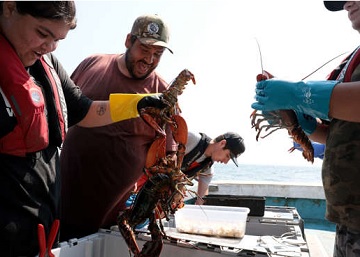
As lobster population booms off Canada, tensions rise between Indigenous and commercial fishermen
Under the close watch of federal officers on surrounding patrol vessels, Robert Sack navigated his old boat toward his clandestine traps in the cold waters that his people have fished for centuries, expecting to be arrested at any moment.,, Each trap had a special tag belonging to their band of the Indigenous Mi’kmaw people, who insist that a 269-year-old treaty grants them the right to fish when and how they want. But the government has rejected their assertion, and officers have seized their traps, confiscated their boats, and even arrested some of their fishermen. >click to read< 07>14
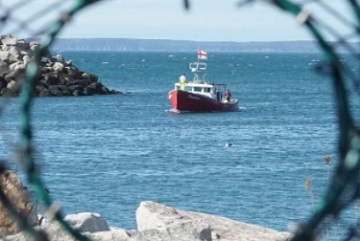
4 Mi’kmaw bands launch moderate livelihood fisheries with government approval
In a news release Wednesday, the Assembly of Nova Scotia Mi’kmaw Chiefs said the treaty fisheries will happen in the Acadia, Annapolis Valley, Bear River and Glooscap First Nations. The group said the Kespukwitk District Netukulimk Livelihood Fisheries Plan will start Thursday, though not all communities will launch then. The Mi’kmaw chiefs said they are following the path set out by the Potlotek First Nation to fish and co-operate with the Department of Fisheries and Oceans.,, The Unified Fisheries Conservation Alliance, which represents commercial fishers, said its members support the deal. “We believe this is an important step in the right direction,,,” >click to read< 19:31

Potlotek First Nation seeking injunction to prevent DFO from interfering with self-regulated fishery
Nova Scotia commercial fishermen will find out Friday whether they can intervene in a court case that tests the federal government’s authority to regulate a Mi’kmaw lobster fishery. The Potlotek First Nation is seeking an injunction to prevent the DFO from interfering with its self-regulated moderate livelihood lobster fishery. The Cape Breton band wants a court declaration that enforcement of the federal Fisheries Act infringes on its treaty right to earn a moderate living from fishing. Justice John Keith said he will issue a decision Friday afternoon. Colin Sproul, a spokesperson for the Unified Fisheries Conservation Alliance, “All I can say is that we’re really happy to have the opportunity to share our perspectives with the court, but I can’t really comment much more than that while there are the issues before the court,” >click to read< 22:40
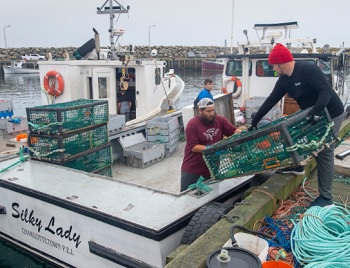
Crab traps seized by DFO during food fishery-Mi’kmaq fisher argues feds becoming more aggressive in seizures
Robert Syliboy and his crew dropped ten traps into the deep waters of the Atlantic Ocean to harvest snow crab for a community feast.,, He said the crab traps were seized before he reached the shore. video, >click to read< Mi’kmaq fisher argues feds becoming more aggressive in seizures of Indigenous gear -“I told fisheries officers I was fishing under the chief and council’s authority, and all the fish was going for food,” Syliboy said. “They disregarded the treaty I was fishing under.” The Indigenous band has cited Supreme Court of Canada rulings, including the Sparrow case in 1990, as affirmations of the Mi’kmaq practice of harvesting fish for ceremonies, food and gatherings. >click to read< 08:42
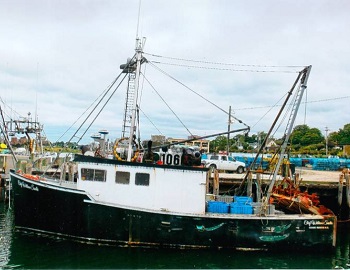
F/V Chief William Saulis: Delaps Cove fisherman calls for raising the scallop dragger
“There’s a huge desire here amongst the communities on the bay shore to see the vessel raised, and for a number of reasons,” said Colin Sproul. Sproul, a fifth-generation fisherman, was working out of his family’s boat-building business at the Delaps Cove wharf on Jan. 17 as word started to spread that the missing vessel was located nearby. For just over a month, searchers scouring land, air and the sea scanned the quiet Bay of Fundy fishing communities in and around Annapolis County’s Delaps Cove.,, >click to read< 08:20

DFO officers seize 500 lobster traps in St. Marys Bay
The Department of Fisheries and Oceans says enforcement officers are going back to St. Marys Bay in southwestern Nova Scotia where they seized hundreds of lobster traps on the weekend in an area used by Mi’kmaw fishermen. Todd Somerville, DFO’s director of conservation and protection for the Maritimes, said 500 traps were seized for a variety of violations. “Untagged gear, improperly configured gear, gear that hadn’t been tended in a while. There was gear where dead lobsters were found. Over 6,000 lobsters, live lobsters, were returned,,, >click to read< 18:17
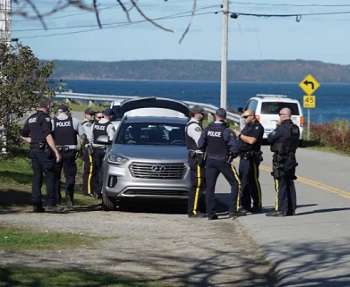
Indigenous Services Minister says Mi’kmaw fishermen in Nova Scotia being ‘let down’ by police
“We must also recognize that once again, as evidenced by the scenes of violence, Indigenous people have been let down by the police, those who are sworn to protect them,” he told a news conference in Ottawa this morning.,, Miller was joined by Fisheries Minister Bernadette Jordan, Crown-Indigenous Relations Minister Carolyn Bennett and Public Safety Minister Bill Blair.,, The Sipekne’katik fishery operates outside the federally mandated commercial season. Commercial fishermen say they worry about its impact on lobster conservation, an argument Sack is trying to discredit. Colin Sproul,,, “The real gulf between Chief Sack’s position and mine is this: we respect and support Indigenous fishery access rights, which was ratified by the Marshall decision, but we respect the entire decision,” >click to read< 16:02
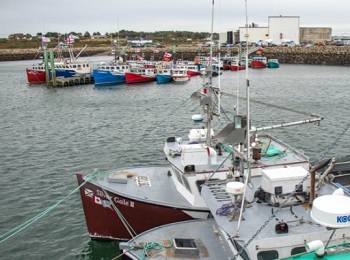
The lobster catch in St. Marys Bay is down, but there’s little consensus on why
DFO has released data showing a decrease in the amount of lobster caught between 2016 and 2018 in St. Marys Bay, the body of water at the centre of a disputed Mi’kmaw fishery in southwest Nova Scotia. Lobster landings in St. Marys Bay were 1,691 metric tonnes in the 2016-2017 season with a record high value of $25 million, according to data released to CBC News by the department. Two years later, landings were down 46 per cent by weight and 32 per cent by value. >click to read< 08:19

Nova Scotia Commercial fishermen turn focus to alleged buyer in Mi’kmaw lobster dispute
Commercial fishermen in southwestern Nova Scotia say they are taking a different approach on Monday in the dispute around the new self-regulated lobster fishery launched by Sipekne’katik First Nation. After several days of hauling in traps belonging to the Mi’kmaw fishers, the commercial fishermen now say they are turning their attention toward those who they believe are buying Mi’kmaw-harvested lobster. “It’s with the federal government and it’s with people from within our own community who are facilitating the buying of illegal fishery products.” A large crowd gathered in protest Monday morning in front of an alleged buyer’s home in the community of Comeauville. >click to read< 13:49
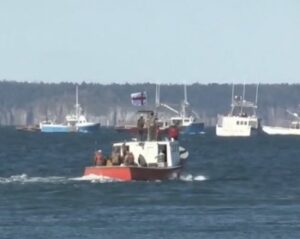
Nova Scotia Indigenous fishermen not backing down after traps removed
Indigenous and non-Indigenous fishermen have been locked in an ongoing dispute. Both sides say things were heated on the water on Sunday. “A Mi’kmaw fishermen went out to check his gear, and he was swarmed by commercial fishing vessels that were cutting him off and hauling their gear, stealing their traps – preventing our people from fishing,” says Sipekne’Katik First Nation Chief Michael Sack. “One of our boats was chased by a First Nations vessel, and they made an attempt to ram him and to board him,” says Sproul. “He immediately turned around and retreated here to Meteghan.” Sack says, while having their gear hauled up by commercial fishermen slows their operation a bit, they are in it for the long haul – with no plans to stop fishing. >video, click to read< 08:35






